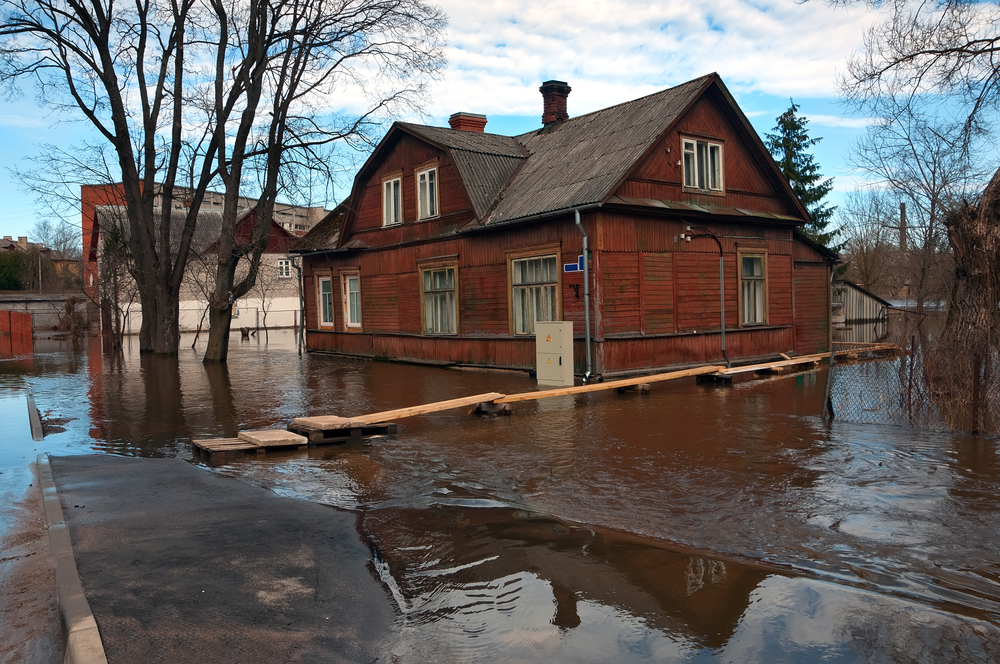Tax Relief for Disaster Areas: Here's What You Need to Know
 When you’re caught in a natural disaster, it can have long-lasting impacts on virtually every aspect of your life—and that includes your taxes. But since most natural disaster victims are focused on filing insurance claims, preserving or restoring damaged property, and otherwise coping with the impacts of the disaster, they don’t usually have much time to spare to think about their taxes. Thankfully, the IRS recognizes this, and so they offer a few different relief options to help victims of natural disasters. Here’s what you need to know about claiming this type of relief.
When you’re caught in a natural disaster, it can have long-lasting impacts on virtually every aspect of your life—and that includes your taxes. But since most natural disaster victims are focused on filing insurance claims, preserving or restoring damaged property, and otherwise coping with the impacts of the disaster, they don’t usually have much time to spare to think about their taxes. Thankfully, the IRS recognizes this, and so they offer a few different relief options to help victims of natural disasters. Here’s what you need to know about claiming this type of relief.
Not Every Disaster Qualifies
First and foremost, it’s important to be aware that not everything you might label as a “natural disaster” will qualify for IRS relief efforts. Smaller, more localized events, such as wildfires and isolated flooding, usually don’t receive this type of relief. To qualify for it, the disaster you’re involved in must be a federally recognized disaster. This means that the area has been declared a disaster zone, and has received a disaster designation from FEMA, and a disaster designation number.
If you’ve been the victim of a large natural disaster, which impacts a fairly widespread area, take a look at the IRS’s website to see if your area qualifies for tax relief efforts. You can find their list of qualifying disaster areas here. If your area is included, be sure to make note of the disaster designation (essentially, the “name” that FEMA has assigned to that event), as well as the designation number. These will both be important if you need to request relief.
Extensions on Important Deadlines
One of the primary ways that the IRS offers relief to victims of natural disasters is by providing extensions on virtually every tax-related deadline, such as filing deadlines, extension deadlines, and even payment deadlines. If you are physically located within the disaster area, the IRS will automatically identify you as qualifying for this extension, and provide it to you without you having to lift a finger. This can be especially important when your tax-related documents are lost or damaged in a natural disaster, and you need a little extra time to get your paperwork in order.
If you don’t live within the disaster area, but your ability to file or pay your taxes has still been impacted by the natural disaster, you may still qualify for relief. However, you will have to submit a request to the IRS in order to receive it. Here are a few examples of such situations:
- Living outside the disaster area, but having a business located in the affected disaster zone.
- Having a tax preparer whose home or business is in the disaster area, making them unable to file or pay on your behalf.
- Any other circumstances in which essential tax paperwork is located within the disaster zone, impacting your ability to file or pay.
If any of the above are true for you, then you’ll need to contact the IRS through their disaster hotline at 866-562-5227 to request tax relief.
Claiming Losses and Disaster-Related Expenses
If you’ve ever been a part of a natural disaster, then you know that such events always come with costs. Whether it’s medical bills, lost property, damage to your home, or other related expenses, those kinds of things can add up quickly, and make it feel as if the disaster never truly ends. If you have expenses related to a natural disaster, and they aren’t being covered or reimbursed in some way, you may be able to deduct them on your tax return.
You can deduct these expenses on the return for the year the event occurred, or for the year prior, if you have not filed that return yet. You can find instructions for claiming this deduction on Form 4684, Casualties and Thefts. Be sure that you include the disaster designation and declaration number we mentioned earlier.
Free and Expedited Tax Return Copies
As stated previously, natural disasters frequently result in important documents being lost, destroyed, or damaged beyond repair. This is why the IRS also offers victims of disasters the ability to receive free copies of old tax returns. Typically, this service comes with a fee, but it is waived if you’ve lost the documents due to a natural disaster. Additionally, the IRS will expedite the processing of this request, so that you can more quickly get those documents in order and handle your business.
As with the other types of tax relief mentioned, you must either live in a designated disaster zone and be automatically identified as a qualifying taxpayer, or you must submit a request via the disaster hotline in order to receive this service.
If you’ve been in a natural disaster, and have questions about receiving tax relief from the IRS, please feel free to reach out to us for assistance. We’ll help you get back on track as quickly as possible, and ensure that you claim any qualifying deductions for disaster-related expenses.